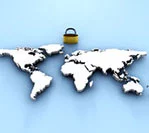An announcement on the Proliferation Security Initiative last week received scant attention, but it has major implications for Malaysia.
THERE was no shortage of razzmatazz last weekend when Barack Obama became the first United States president to visit Malaysia in almost 50 years.
The sheer novelty of an American presidential visit and Obama’s rock-star appeal probably generated enough news coverage to match what the next dozen or so visiting kings and queens, presidents and prime ministers will receive – combined.
Yet, a major announcement by Prime Minister Datuk Seri Najib Tun Razak during his joint press conference with President Obama last Sunday has received scant attention.
And that was on Malaysia’s decision to endorse the Proliferation Security Initiative (PSI).
The PSI is the most important security arrangement you’ve probably never heard of.
The reason it’s obscure is that a lot that takes place under the PSI is either too boring – like the many meetings and exercises involving diplomats and defence officials – or simply too sensitive to be reported.
But the PSI serves a serious and important purpose: to prevent the trafficking of weapons of mass destruction (WMD) and all the key items and technologies needed to make or use them.
At first glance, Malaysia’s endorsement of the PSI would seem like an easy decision to make.
After all, how could any country be against an initiative that stops terrorists and other belligerents from getting what they need to build, for example, rockets filled with deadly sarin gas?
As early as 2010, the Institute of Strategic and International Studies (ISIS) recommended Malaysia’s participation in the PSI.
With last Sunday’s announcement, Malaysia became the 103rd country to endorse the initiative, which began 11 years ago in 2003.
So what took us so long?
Part of the reason is that smuggled WMD materials – like more than 90% of all goods traded in the world – are usually transported on ships.
And that takes us into the fraught and complicated territory of the international law of the sea.
Stopping a shipment of, say, missile parts could involve a country sending its coast guards or navy to board, search and detain a vessel that’s passing through its waters.
The trouble is that, until more recently, it wasn’t always clear whether a country could interdict a foreign-flagged ship like that – even in its territorial waters, which extends up to 12 nautical miles from the coastline.
And that’s because ships have the right of innocent passage in territorial waters (and freedom of navigation in the high seas).
Ever since the 17th-century Dutch jurist Hugo Grotius wrote foundational works on the subject, the general principle is that you can’t stop a ship on its journey unless you have a very good reason to do so.
And that’s been enshrined in the United Nations Convention on the Law of the Sea (Unclos).
There are, of course, exceptions to that general principle.
Most of them are pretty obvious, like if a ship is threatening that country’s sovereignty or causes serious pollution or conducts fishing without permission.
All in all, Unclos spells out 12 different types of activities that would take away a ship’s right of innocent passage.
But startlingly, WMD trafficking isn’t one of them.
When Unclos was drafted, nobody seemed to have envisaged such a scenario.
This gaping hole in international law has since been dealt with, though only partially and very imperfectly.
There are now at least six UN Security Council Resolutions that can be used to justify interdictions at sea in specific circumstances.
Countries can also cite their own domestic laws. In Malaysia’s case, that would most likely be the Strategic Trade Act 2010.
But even when these difficult legal issues have been addressed, how do you decide whether a particular shipment is intended for a WMD programme?
Many goods these days serve dual purposes: they can be used for legitimate civilian purposes as well as to make incredibly destructive weapons.
For example, a number of companies in South-East Asia make a type of radial ball bearings that are used in all sorts of civilian machinery.
But they can also be fitted in the turbopumps of rockets used in missiles.
That’s why you need high-quality, detailed information, which often comes from painstaking investigations such as looking for telltale signs in documents like vessel manifests and bills of lading.
More often than not, information is gathered from multiple countries – it’s rare that any single country could collect all the required details on their own.
And that’s where the PSI comes in.
A key part of the PSI involves meeting after meeting, exercise after exercise of figuring out the best ways for countries to share information on possible attempts to smuggle WMD materials.
PSI participants also work on determining the legal basis for specific kinds of interdictions and rehearse the various scenarios in which they can be done most effectively.
Admittedly, countries could stay out of the PSI and yet fulfil their responsibilities to stop WMD proliferation, as Malaysia has all these years.
But being in the PSI would undoubtedly bolster Malaysia’s capacity to do so.
Above all, Malaysia’s participation in the PSI sends a strong signal of its seriousness in addressing a grave threat to international security.
Indeed, the Prime Minister’s announcement was one of the most important, though understated, outcomes of last weekend’s momentous visit.
Article by Shahriman Lockman which appeared in The Star, 3 May 2014





